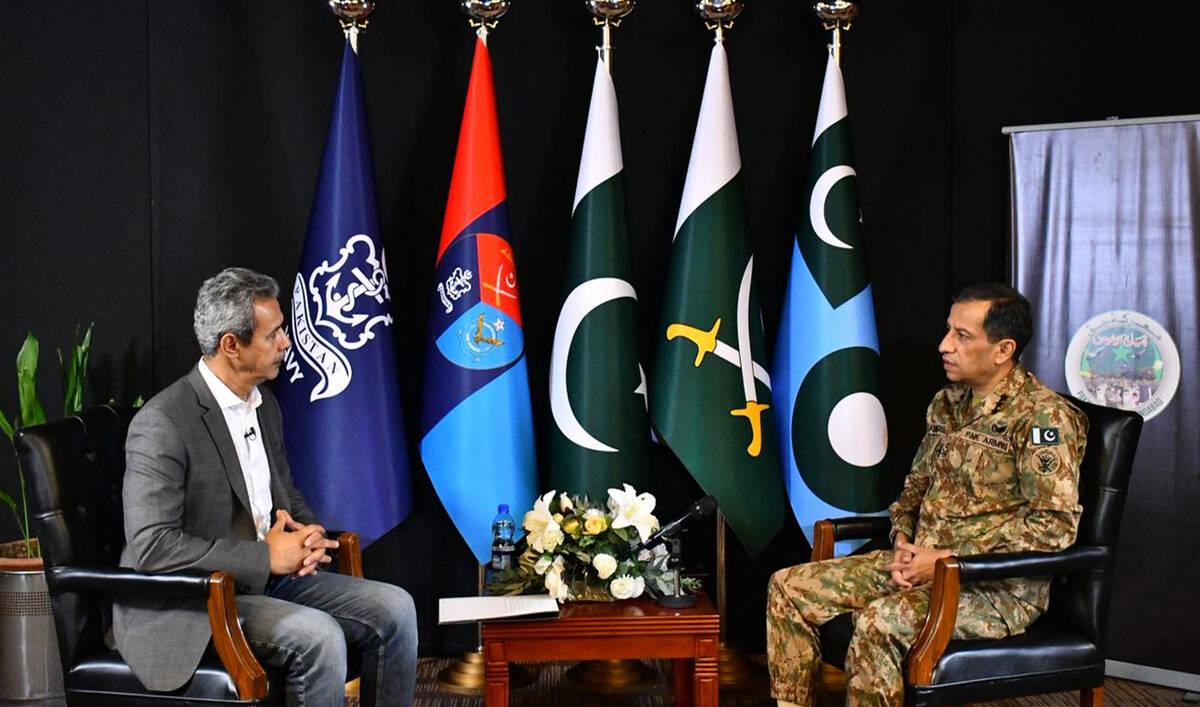ISLAMABAD: The government on Monday accused former prime minister Imran Khan’s Pakistan Tehreek-e-Insaf (PTI) party of trying to scuttle a deal with the International Monetary Fund (IMF) after a local news channel played audio recordings of phone calls between a senior PTI leader and finance ministers of Punjab and Khyber Pakhtunkhwa provinces.
The leaked conversations were played by Geo News on the day when the IMF executive board is scheduled to review its staff-level agreement with Pakistan and decide if it wants to approve the resumption of a $6 billion loan program for the country.
Pakistani officials have said they are hopeful that the international lending agency will release $1.17 billion after the meeting since the country has met all its preconditions. However, the leaked phone calls suggest Khan’s close aide Shaukat Tarin instructed PTI administrations in Punjab and Khyber Pakhtunkhwa to renege on their commitments of provincial surplus ahead of the executive board meeting.
Discussing the audio leaks in a news conference, finance minister Miftah Ismail criticized the PTI leaders for jeopardizing the country’s economic interest for their own political gains.
“Are you bigger than this country,” he asked. “If there is no Pakistan, there will be no PTI.”
Ismail criticized Khan’s administration for mismanaging the national economy.
“First they made a promise to the IMF and then they broke it,” he said while referring to the PTI government’s decision to offer fuel and power subsidies earlier this year.
He added his own party was reluctant to assume the political power of the country at such a difficult economic juncture, though it ultimately decided to put its own “political capital at stake to save Pakistan.”
According to the audio recordings played by Geo News, PTI’s Tarin told Punjab finance minister Mohsin Leghari not to honor his province’s commitment to the IMF.
“You have signed a Rs750 billion commitment with the IMF,” he said. “You need to tell them now that the commitment was made before the floods.”
Khan’s aide also maintained the decision was taken to put the incumbent government under pressure.
A similar phone call between Tarin and Khyber Pakhtunkhwa’s finance minister Taimur Jhagra was also played by the news channel.
The audio recording was aired two days after the province backtracked from its IMF commitment.
Reacting to the development, Asad Umar, a senior PTI leader, held a news conference in which he defended Tarin’s conversation with the two provincial ministers.
“Shaukat Tarin only asked the finance ministers of the two provinces to tell the government that the country was facing floods and it was not a normal situation,” he said. “He asked them to seek concessions from the IMF vis-a-vis the provincial surplus condition under the circumstances.”
“Can any sane person say that it is not a good advice,” Umar asked.
He said that Khan also took a similar initiative during the COVID-19 pandemic to demand fiscal space for the country by calling the top IMF official on his own.
















